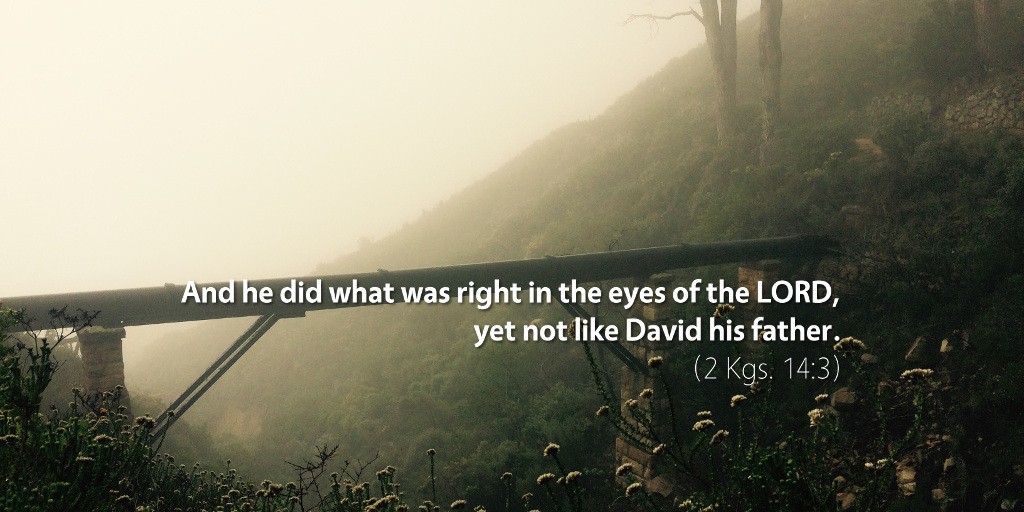Oct 31 2021 4 mins 5

Bible Readings for November 1st
2 Kings 14 | 2 Timothy 4 | Hosea 7 | Psalms 120, 121 & 122
In 2 Kings 14, we read a strange role reversal between the two kingdoms, Judah and Israel. In this chapter, we find Judah with a relatively godly king, Amaziah, who does right in the eyes of Yahweh, even though he permits the high places—that is, hills where the people of Judah would offer unauthorized sacrifices—to remain (2 Kgs. 14:3–4). On the other hand, we have Joash (also called Jehoash; 2 Kgs. 14:1, 8), the king of Israel, who does evil in the sight of Yahweh and who does not depart from the sins of Jeroboam (2 Kgs. 13:11).1 Yet, when the two go into battle, the godly King Amaziah of Judah loses, and the wicked King Joash of Israel captures Amaziah and ransacks the temple in Jerusalem (2 Kgs. 14:13–14). Shouldn’t the righteous always win out over the wicked?
In fact, the story is a bit more complicated than a simple battle of good versus evil. First, as mentioned earlier, Amaziah does not do all that he could in obedience to Yahweh. In fact, the biblical author specifically delineates that Amaziah is “not like David his father” (2 Kgs. 14:3). In part, this refers to leaving the high places to remain, but the phrase also suggests that Amaziah simply is not a man after Yahweh’s heart as David had been.
Furthermore, the manner in which Amaziah goes into battle against Joash sounds like prideful, puffed up bravado after a big victory over the nation of Edom and not like a godly pursuit of the kingdom of God. In 2 Kings 14:8, Amaziah challenges Joash, saying, “Come, let us look one another in the face,” and, while Joash tries to warn Amaziah off, his message seems only to provoke Amaziah further.
We should learn from this that godly kings—and godly people—can make foolish, catastrophic mistakes when they are inflamed with pride. Also, we should notice that Amaziah did not follow Yahweh fully but instead he cut corners along the way. It is possible—although the text stops short of telling us—that Amaziah might not have sinned by provoking war with Israel if he had walked more closely with Yahweh. Certainly, even David stumbled to make terrible mistakes occasionally, but David also avoided many of the terrible mistakes of Saul and of Solomon because of his persistent love for Yahweh all the days of his life.
As we grow older, when some of our youthful temptations begin to fade away, our pride can stiffen. In all things, let us strive to follow closely after Jesus, fighting with faith the kind of pride that can lead our hearts into awful, foolish decisions. Pray that God would give you the grace to persevere all the days of your life that you may finish the race well.
1 For the sake of clarity, it should be noted that there is also a Joash/Jehoash who is the king of Judah, referenced in 2 Kings 11–12.

Scripture quotations are from The Holy Bible, English Standard Version copyright © 2001 by Crossway Bibles, a division of Good News Publishers. Used by permission. All rights reserved.
